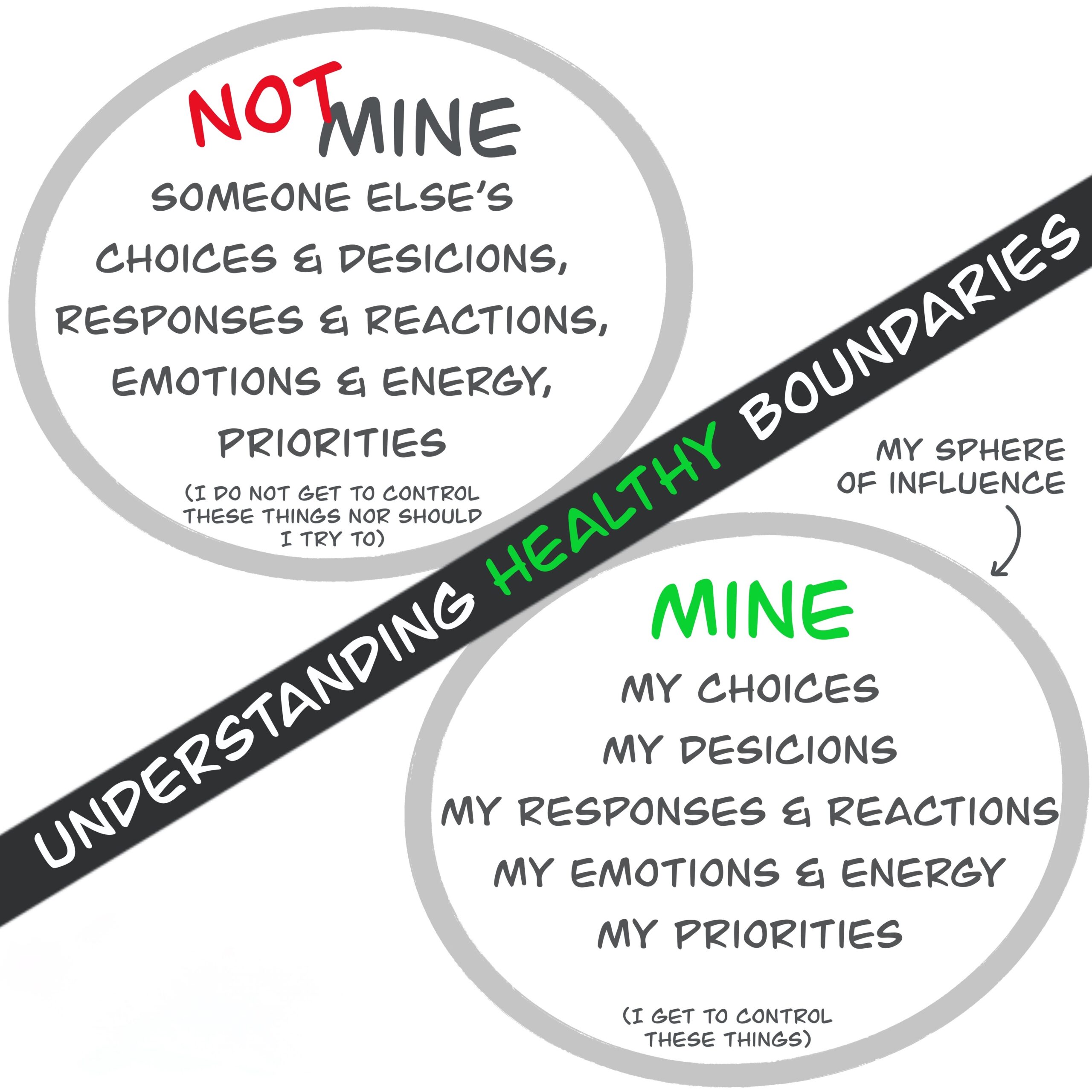Healthy boundaries are essential for maintaining both personal well-being and the quality of our relationships. They allow us to recognize what belongs within our own sphere—our emotions, choices, and priorities—and what belongs to others. When we respect these boundaries, we honor both our own sovereignty and that of the people we care about.
In relationships, boundaries help us avoid the temptation to control or influence another person’s actions. Instead, they allow for authentic connection, where both individuals can express their needs and desires freely, without fear of rejection. A truly loving relationship is one where both people respect each other’s boundaries and willingly prioritize what matters to the other when possible. When we operate within healthy boundaries, we create space for genuine respect, care, and mutual support.
Setting Healthy Boundaries
Healthy boundaries start with understanding that we can only control our own actions, emotions, and priorities. Trying to manipulate or control someone else’s sphere leads to dysfunction. It’s common to want a specific response from others, but it’s important to allow them the freedom to make their own choices. This doesn’t mean we detach from others emotionally, but rather that we honor their personal sovereignty.
When boundaries are clear and healthy, each person can say, “This is what I want,” without needing to control the outcome. In loving, respectful relationships, both parties can trust that their needs are valued. If someone can’t meet those needs, it’s not seen as a rejection but rather an honest limitation. The key to sustaining healthy boundaries is open communication, where both individuals feel safe sharing their desires and making decisions without pressure.
Recognizing the Lack of Reciprocity
Toxic relationships often emerge when one person consistently gives care, love, and attention, but the other person fails to reciprocate. It’s important to recognize when you are honoring someone else’s needs, yet they aren’t doing the same for you. This isn’t about control or manipulation; it’s about mutual respect and understanding.
In a healthy, loving relationship, both individuals naturally consider and prioritize each other’s needs because they value and care for one another. However, if you find yourself consistently giving but rarely receiving the same consideration in return, it’s a signal to evaluate the relationship. The issue isn’t necessarily that you’re doing something wrong—it’s about recognizing that the other person may not be capable or willing to honor your needs in the same way you’re honoring theirs.
Acknowledging this lack of reciprocity is key. When you become aware of this imbalance, you can make empowered decisions about which relationships to nurture and which to reconsider. Healthy relationships are built on mutual care and respect, and when that balance is absent, it’s worth reflecting on whether the relationship aligns with your values and the respect you deserve.
Building Better Relationships
When we establish and maintain healthy boundaries, relationships naturally shift. Some connections may fade, making room for new relationships with individuals who respect and value our boundaries. These healthier relationships don’t always mean getting what we want, but they do mean being seen, heard, and respected.
When we approach our relationships with this mindset, we create a space where we feel appreciated, understood, and respected, even when things don’t always go the way we hope. It’s not about getting everything we want, but about knowing that the people in our lives genuinely care and will do their best to honor what’s important to us. At the same time, we offer them the same level of care and understanding, knowing that love and respect flow both ways. In this way, we build relationships rooted in trust, where both individuals can grow and thrive together.
Actionable Insights:
- Reflect on your boundaries: Are you trying to control or predict others’ actions, or are you honoring their personal sovereignty?
- Evaluate your relationships: Are your priorities being respected, or are you consistently putting others’ needs above your own?
- Practice open communication: Share your needs without fear of rejection, trusting that genuine care will lead to mutual respect and understanding.


Leave a Reply